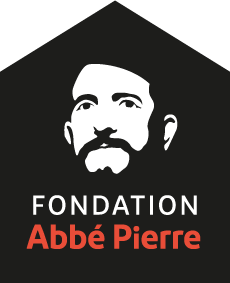There are critical land issues which have not been addressed properly in Nepal till date, some of which are land management of landless Dalit, Landless, and Informal settlers; farmer’s rights in trusty land, grantee land registration for tillers/ploughers, resettlements of displaced people, resettlements of Haliya (The bonded labor in Far western Province), Joint land certificate for married couple, and safer habitant and appropriate land portion for landless and socially excluded groups, land registration of informal settlers as per acquisition as well as unresolved land issues in reconstruction process. They are yet to be resolved nationwide. In this context, a project “Land rights and ownership campaign” was conceived to:
- To enhance the local capacities to address unresolved land issues and to effectively facilitate the implementation of the existing land policies and programs at the local level
And specifically:
- To prevent land rights deprived communities from possible eviction and facilitate their land registration process
- To provide technical and top up support for a prototype house design of the most vulnerable families to promote appropriate technology which will be earthquake resistant, affordable, climate resilient and following local building culture.
- To enhance capacity of land activists and mobilize them to influence and facilitate in the functioning of local, provincial and national level land related policy and program.
- To advocate for protecting natural resources, their sustainable use, ecological balance, and disaster management through land management.
ASF Nepal in coordination with National Rights Forum (NLRF) and financial support of FONDATION ABBE PIERRE POUR LE LOGEMENT DES DEFAVORISES (FAP) thus started this project in June 2022.
Since its inception, a number of activities have been conducted to fulfil the targeted objectives of the project.
- Prevention of land rights deprived communities from possible eviction and facilitate their land registration process
Facilitation and coordination with relevant agencies is ongoing in various districts by the field mobilizers. As a result of which, 1583 HHs have received village block certificates (Siraha – 634 and Udaypur – 949). Facilitation in 34 districts for data collection is also ongoing – in Sunsari, Morang, Jhapa, Udayapur, Sarlai, Rautahat, Dhanusha, Makwanpur, Kaski, Nawalpur, Rupendehi, Kapilbastu, Dang, Banke, Bardiya, Kailali, Kanchanpur districts the proof card for land ownership certificate registration is being distributed. Exact no. of all the recipients is being collected and compiled. Facilitation to tenancy rights separation will also resume as per government mandate which will help the tenants to register for the tenancy land separation certificates.
- Providing technical and top up support for a prototype house design of the most vulnerable families to promote appropriate technology which will be earthquake resistant, low cost, adaptive and following local building culture
Site assessment has been completed for 2 sites (Chaudandigadi, Udaypur and Panchewor, Baitadi). Appropriate and affordable house design will be prepared for the selected landless and most vulnerable people of these places after the analysis of the assessment data. These designs once approved by the relevant authorities, will be used for the construction. 10 of the selected people (5 from each site) will be given top up support in addition to the government grant for the construction of their houses.
- Enhancing capacity of land activists and mobilize them to influence and facilitate in the functioning of local, provincial and national level land related policy and program
National level Orientation workshop for frontline leaders on land policies, guidelines was conducted and 136 participated from 46 districts participated. These participants will be mobilized and engaged in land rights campaigns, policy changes commitments from national stakeholders, documentation of recent achievement of national land rights campaign and such activities.
- Advocating for protecting natural resources, their sustainable use, ecological balance, and disaster management through land management
Municipality officials in the presence of local representatives and district land commission officials have been oriented on Land commission mandate and role of local government in the management of landless Dalit, squatters, and unplanned settlers in various municipalities. As a result, Chaudandigadi municipality in Udaypur has addressed land management issues in their policy and program providing a conducive environment for further work, Madyabindu municipality in Nawalpur has policy and budget to address land issues but they have requested for support for implementation, Pancheshwor Rural municipality in Baitadi has allocated 7 lakhs budget (7 hundred thousand) for land management along with policy and programs, Melauli municipality is making plans for land survey and ward 9 has even allocated budget of NPR. 2 lakhs (2 hundred thousand) for local land development. In Triyuga and Katari municipalities of Udaypur, work of data collection of landless dalit, squatters, and unplanned settlers has taken up speed. Department of survey has also started distributing village block land registration certificates. Similarly in Kavre and Sarlahi, data collection of landless Dalit, squatters, and unplanned settlers and land survey work has taken up speed after similar orientation. In Rajpur municipality ward 5 Dang, 1125 biga (150.5 hectares) land is empty and they have requested support to develop guidelines and plan for its use.
Furthermore, in Pancheshwor RM, farming based livelihood development program which will support local land use management practice, disaster risk reduction and natural resource preservation program and promotion of dalit arts and crafts for the livelihood development program was formulated for which 2 crore has already been approved and allocated by National Planning Commission. Also for Italam in this RM, a proposal has been prepared for sesame and fruit farming and submitted to the Ministry of Agriculture and Land Development for budget approval.
Assessment is also ongoing to understand the context (24 toles have been selected on the basis of selection criteria – 8 dalit, 8 mixed, 8 marginalized|farming and usable land area|disaster prone vulnerable areas|prioritized areas by municipalities for land use planning and assessment is being conducted through participatory approach) for Tole level land use plan formulation and pilot implementation in one tole.

